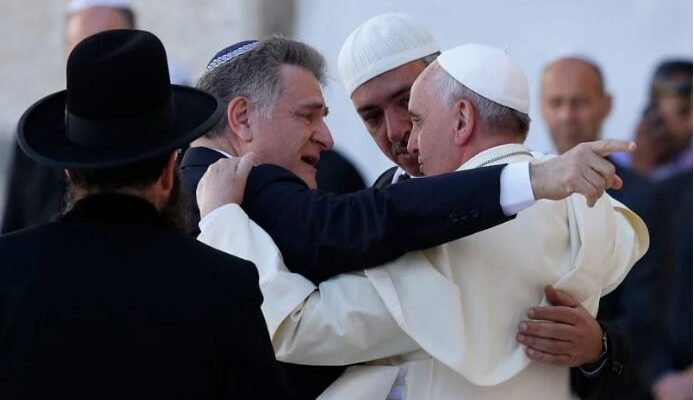I work with a Jewish man who shows great interest in the Catholic faith, but at the same time feels attached to his Jewish heritage and all it means for him. Is there some way I can show him that becoming a Catholic still respects his Jewish heritage?
As I have written before in this column, one of the principal articles of Jewish belief is the expectation of the Messiah who is to come. It runs throughout the Old Testament Jewish scriptures. Today’s Jews are still awaiting the coming of the Messiah. But, as we Catholics and other Christians know, the Messiah has already come and he is Jesus Christ.
In view of this, a Jew who comes to believe that Jesus Christ is truly the Messiah is not abandoning his Jewish heritage but rather bringing it to fulfilment. The first Christians, including the apostles, were practically all Jews who believed that Jesus was the promised Messiah. And the preaching of the apostles, beginning with St Peter’s discourse on the day of Pentecost, was aimed at showing the Jews that the Old Testament prophecies were fulfilled by Jesus (cf. Acts 2:14-36; 3:12-26).
Roy Schoeman, in his book Salvation is from the Jews, shows how many contemporary, and older, Jewish converts to the Catholic faith saw their conversion precisely in this way. He quotes, for example, Rosalind Moss, a contemporary Jewish-Catholic evangelist, who says that becoming Catholic is “the most Jewish thing a person can do” (p. 323).
Cardinal Jean-Marie Lustiger, who was born into a family of Polish-Jewish immigrants, became a Catholic, was ordained a priest and later a bishop, and was Archbishop of Paris from 1981 to 2005, said: “I explained [to my father] that baptism would not make me abandon my Jewish condition – quite the contrary, it would lead me to find it, to receive the plenitude of its meaning. I did not have the feeling that I was betraying my heritage, or camouflaging myself or abandoning anything whatsoever. Just the opposite: I felt that I was going to find the import, the meaning of what I had received at birth” (Ibid., pp. 323-24).
Read the article by Fr John Flader in The Catholic Weekly.

